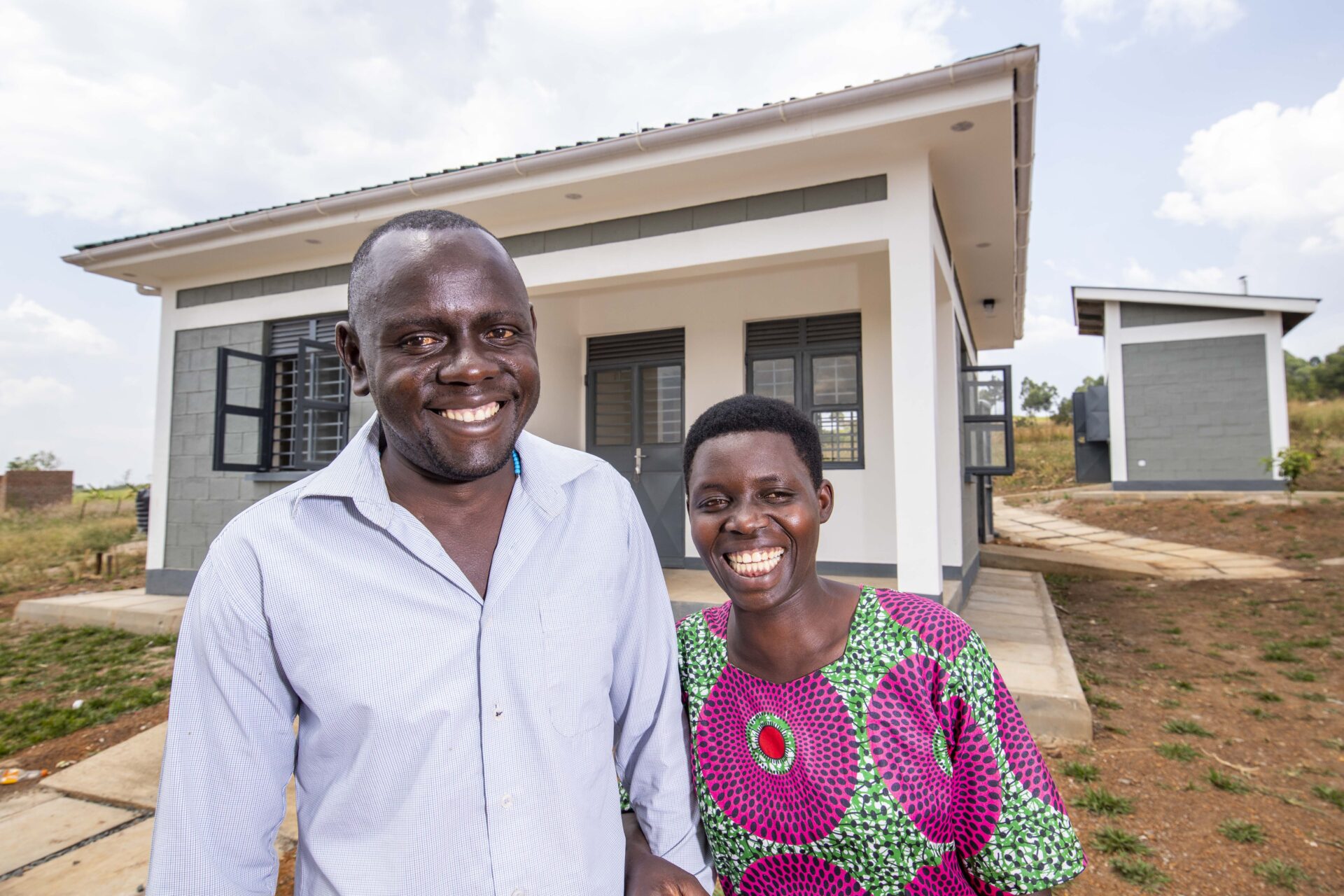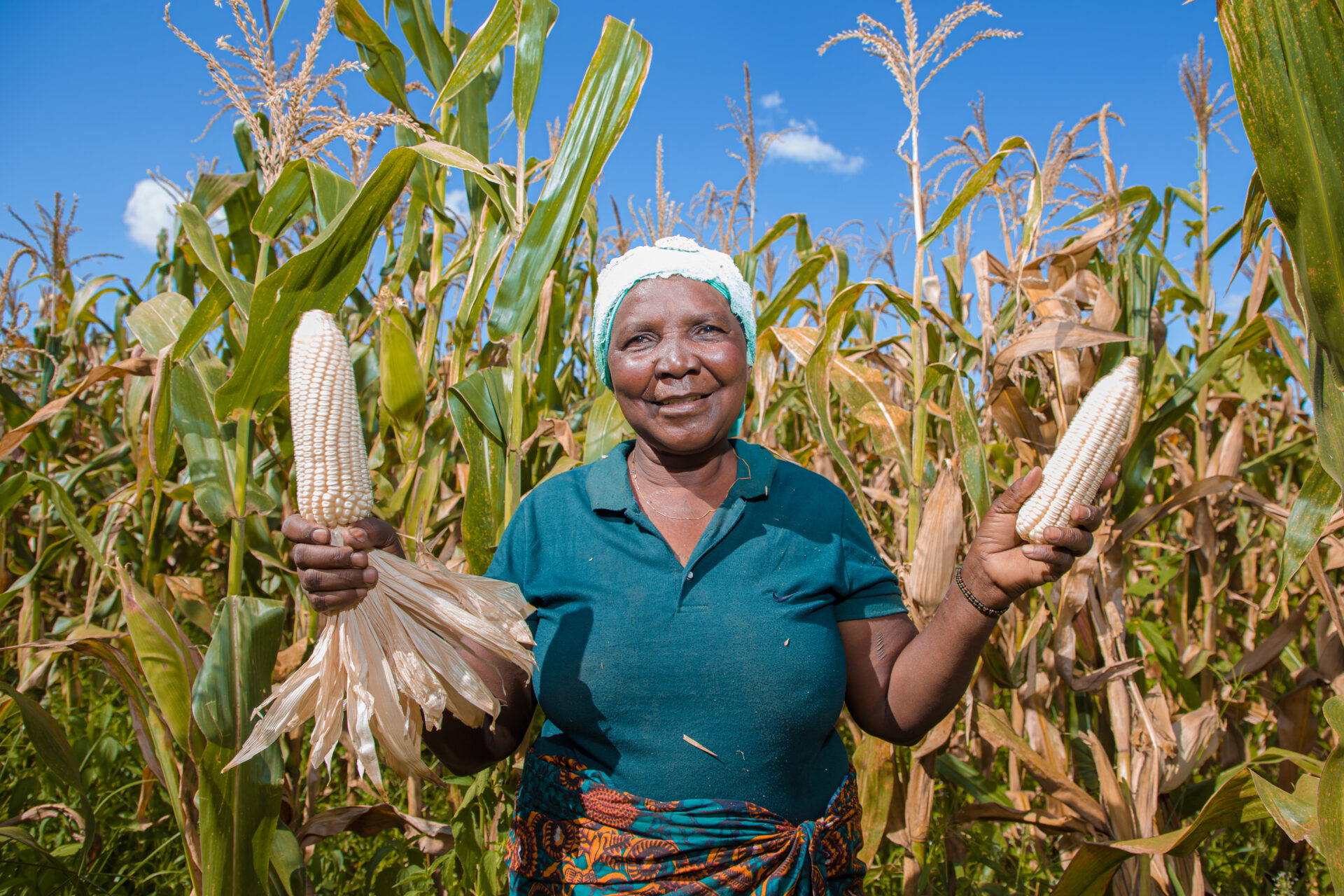The EACOP project signed on 6th July 2022 a Free Prior and Informed Consent (FPIC) Agreement with the Akie Community of Napilikunya in Manyara region, Tanzania in respect of their cultural and spiritual values. The signing of the FPIC Agreement was the cumulation of several years of engagements with Vulnerable Ethnic Groups Self-identifying as Indigenous Peoples affected by the EACOP Project. The signing event was officiated by the EACOP Tanzania General Manager Wendy Brown and witnessed by the Acting District Administrative Secretary (DAS) of Kiteto district Mr. Fadhili Alexander.
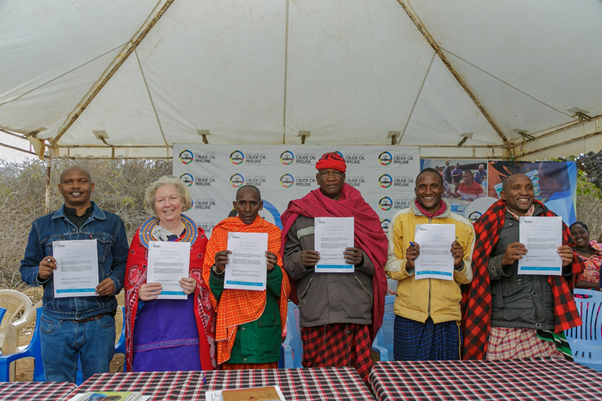
“Today we are making history, I understand this is the very first FPIC Agreement ever in Tanzania, and one of only a handful in Africa. EACOP is very proud to be taking this first step with you the Akie community of Napilikunya” stated Wendy Brown, General Manager of the EACOP Project in Tanzania during the signing ceremony.
Dr. Elifuraha happily expressed “I feel very proud that Tanzania joins a few countries in the region that have implemented FPIC – an emerging international law principle requiring culturally-appropriate engagement with vulnerable communities prior to implementing projects.” He added “I am also profoundly impressed by EACOP’s good faith, transparency and commitment to meaningful engagement that has empowered the Akie community to make informed decisions. This is an incredible precedent for future projects in Africa.”’
Speaking during the event, Mr. Fadhili the Acting DAS, commended EACOP for conducting meaningful engagements that have resulted in the smooth operation of Project activities in Kiteto District, Manyara Region and for following international standards. Free, Prior and Informed Consent (FPIC) is a requirement under International Financing Standards and International Human Rights Law for development projects that potentially impact indigenous peoples land and cultural heritage. Through its Human Rights Impact Assessment and land acquisition process, EACOP identified impacted villages whose communities include Vulnerable Ethnic Groups Self-Identifying as Indigenous Peoples namely Maasai, Datoga (Taturu and Barbaig) and Akie.
EACOP’s many engagements with the respective communities since 2017 and, since December 2019, quarterly engagements with the traditional leaders of these groups has led to greater understanding of the specific Project impacts on each community including understanding the presence of potentially impacted cultural and sacred sites. “Our engagements have been focusing on ensuring the Akie community is well informed to make the right decision’ emphasised EACOP’s Manyara-based Community Relations Coordinator Emil Msisiri.

By using participatory approaches, EACOP’s team led by Social Lead Fatuma Mssumi and the communities developed a Vulnerable Ethnic Groups Self-Identifying as Indigenous Peoples Framework document which was signed in October 2021 by the Traditional Leaders and three Non-Governmental Organisations with experience of working with the respective communities: Ujamaa Community Resource Team (UCRT), Pastoralists Indigenous Non-Governmental Organization’s Forum (PINGO’s forum) and Parakuiyo Pastoralists Indigenous Community Development Organisation (PAICODEO).

The signing of the Framework Agreement which includes respect of sacred sites was a step towards the Akie community’s agreement to relocate a sacred site of cultural and spiritual significance from a Baobab tree on the land of the Lembulu family to a Baobab tree on the land of the Oring’idi family. This exercise was supported and facilitated by the EACOP Project Social team who also participated during parts of the ceremony.
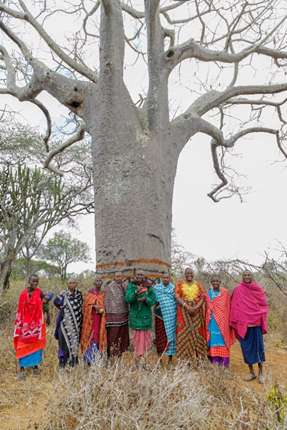
Commenting on reaching the FPIC milestone, Bariki Lelya a representative from UCRT, highlighted that this is the first time UCRT has worked with a mega project to ensure meaningful engagement with Vulnerable Ethnic Groups Self-Identifying as Indigenous Peoples and advised EACOP to consider the request of the Akie community to protect the new sacred site and assist the community to secure the customary right of occupancy, advice that was further cemented by Saitoti Parmelo a representative of PINGO’s forum, Adam Ole Mwarabu a representative from PAICODEO as well as representatives of the Akie Community. During the ceremony EACOP committed to this support.
Wendy Brown further confirmed to the Akie community EACOP’s commitments to: Supporting informed consultation and participation; providing capacity-building; providing a culturally appropriate grievance mechanism; addressing potential adverse impacts associated with the development of the EACOP Project; promoting development benefits in culturally appropriate ways; and engaging with government as appropriate. EACOP is committed to complying with the highest international standards for sustainable development including IFC Performance standards which includes Performance Standard 7 covering Indigenous Peoples.
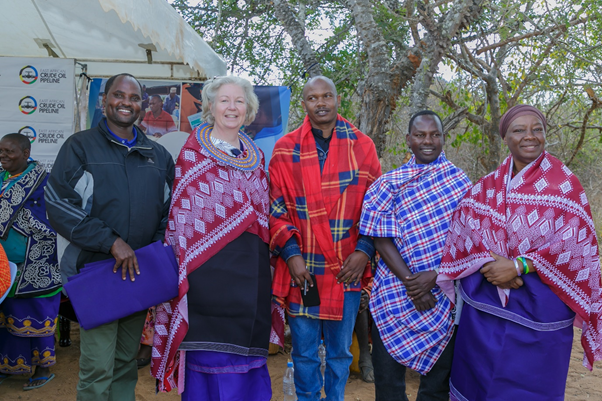



The FPIC process has been guided and supported by Dr Elifuraha Laltaika a renowned expert in indigenous peoples’ rights and EACOP Human Right Advisor Lloyd Lipsett, an International Human Rights Lawyer.
By Mariagoreth Charles

